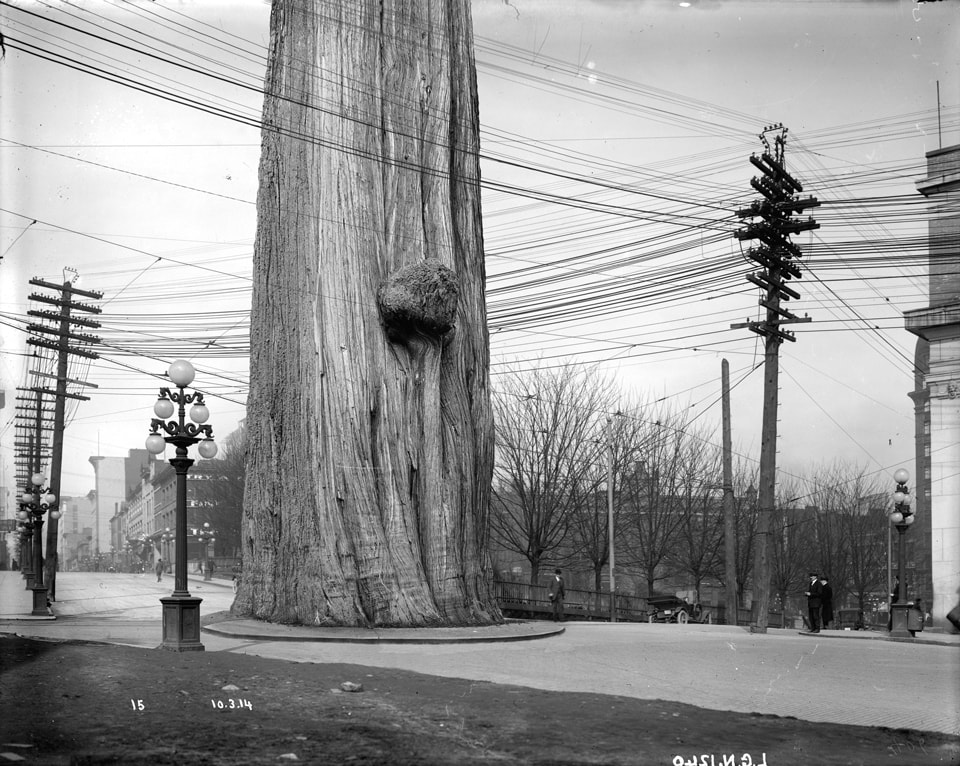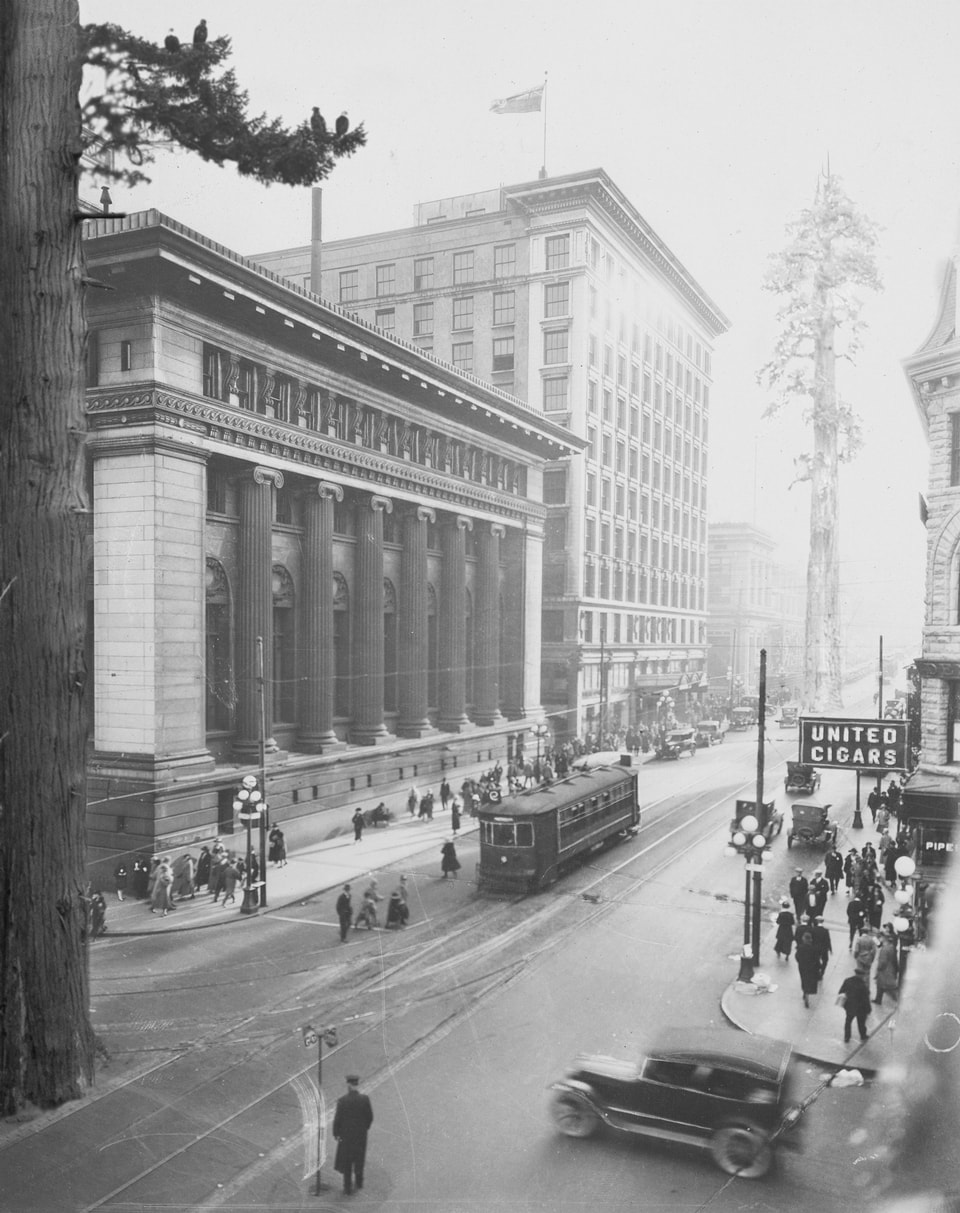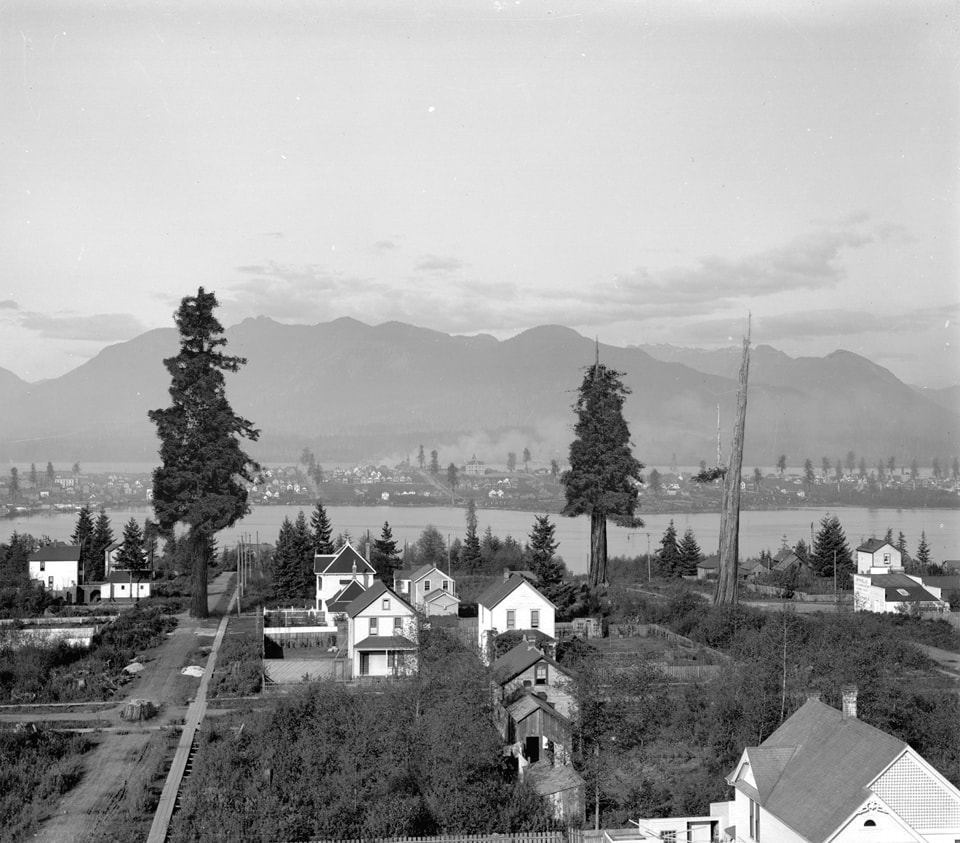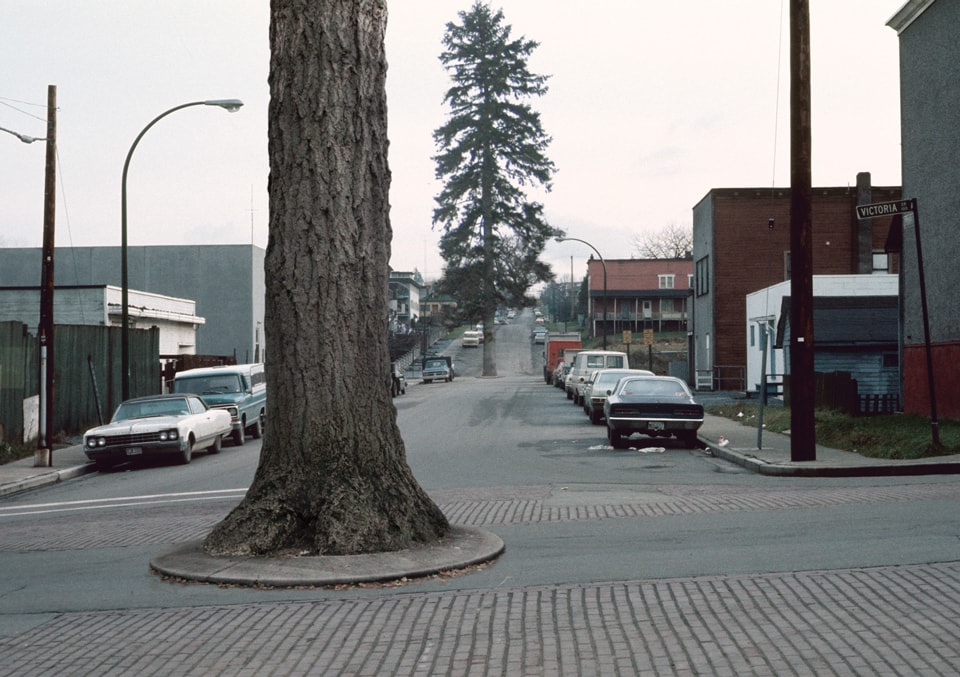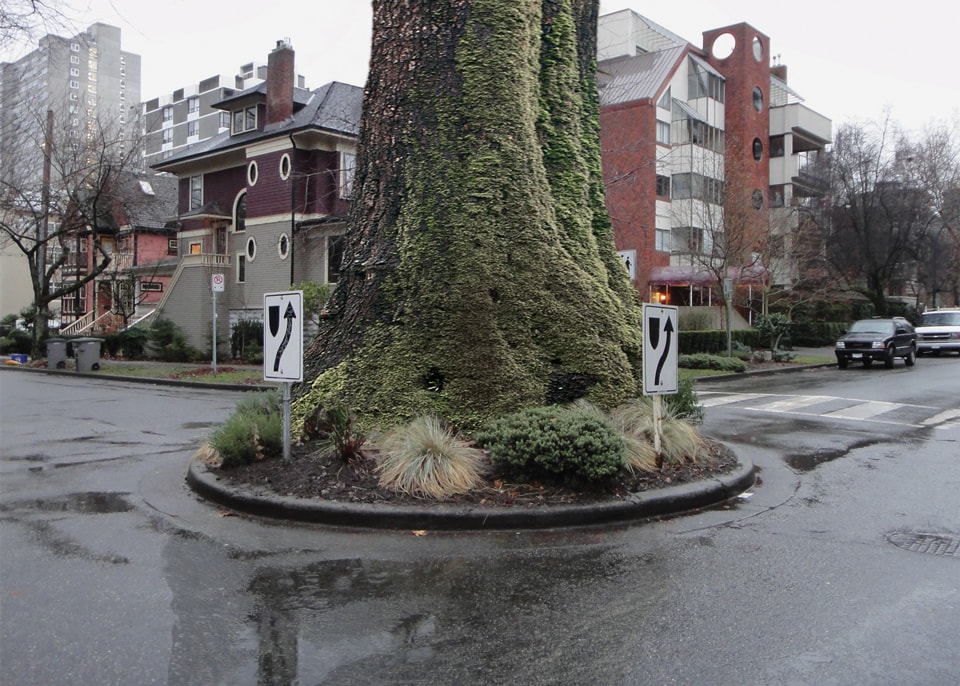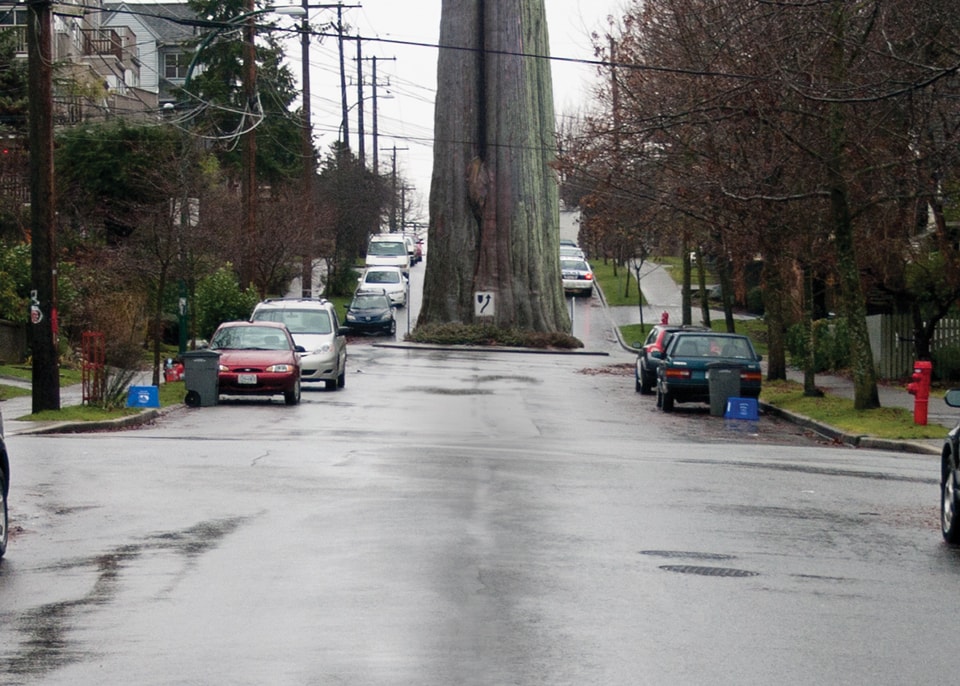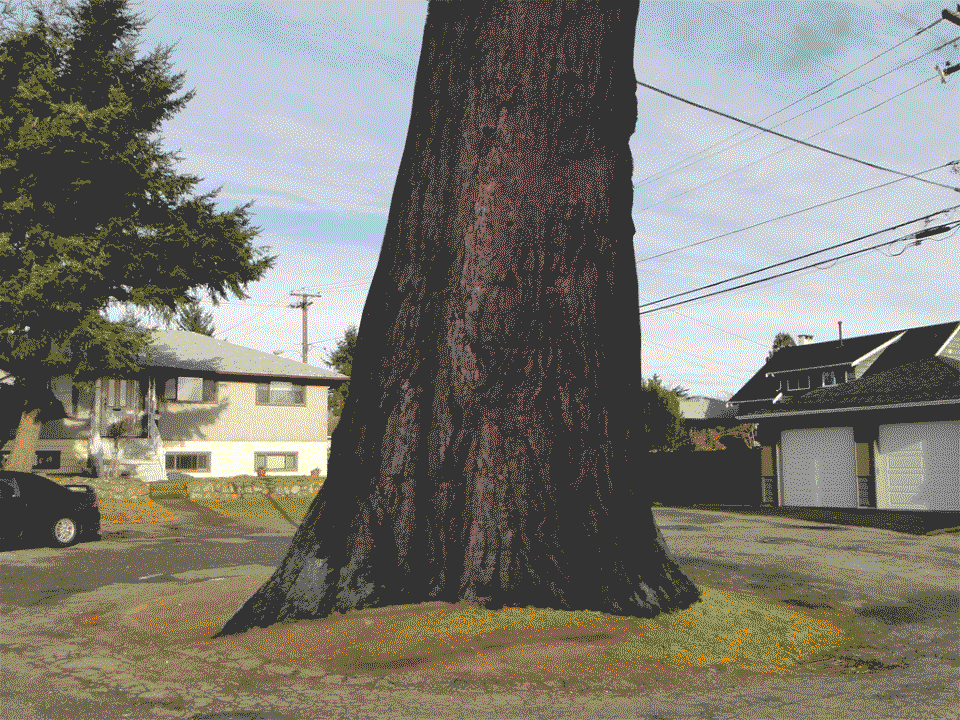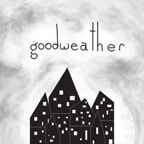What would a metropolis in the Pacific Northwest look like if urban planners at the turn of the twentieth century had recognized and exploited the spatial potential of old-growth trees rather than their resource potential? Employing techniques of photomontage and urban mapping, we have proposed an anachronistic detour that decouples empirical fact from historical memory.
While in the present city of Vancouver, the center space of traffic roundabouts is given over to various sanctioned treatments—community gardens, a monumental rock, and so on—in this “retroprojective” proposal an alternative vision of the not-so-distant past is offered, one in which forward-thinking city planners leave an old-growth tree in the middle of each future roundabout.
With this simple gesture, we can envisage an entirely different city, one in which massive trees are no longer a rarity but instead fundamentally define and shape our movement through the urban fabric of Vancouver. While the singular presence of each tree is in itself remarkable, their collective existence is a legacy comparable in size and density to that of Stanley Park, Vancouver’s beloved urban green space. With this action on the civic imagination, the city becomes a forest, and the forest a city.
Roundabout Vancouver: Wires, ca. 1914
Roundabout Vancouver: Hastings St, ca. 1920s
Roundabout Vancouver: Mt Pleasant, ca. 1930s
Roundabout Vancouver: East Village, ca. 1970s
Roundabout Vancouver: Bidwell/Nelson, ca. 2010
Roundabout Vancouver: Britannia, ca. 2010
Roundabout Vancouver: a retroprojective proposal
This piece was originally produced for the exhibition WE: Vancouver – 12 Manifestos for the City at the Vancouver Art Gallery, February-May 2011. It has appeared in Cabinet Magazine, Issue 43: Forensics and on the CCA Recommends list of the Canadian Center for Architecture.
Project Credits: Michael Lis, Daniel Irvine, Chad Manley
Goodweather is an interdisciplinary design collective based in Vancouver, Canada.
Formally established in 2012, Goodweather is both an operating platform and alias, functioning as a ‘nom-de-plûme’ that permits work to be undertaken in a diverse field of creative engagements; from self-initiated works to collaborative projects, from private commissions to commercial work and design destined for industry or the public sphere. Drawing primarily on a background in architecture, but recognizing that contemporary design demands an interlacing of associated practices, Goodweather operates within and among a number of allied fields including architecture, design and fabrication.

